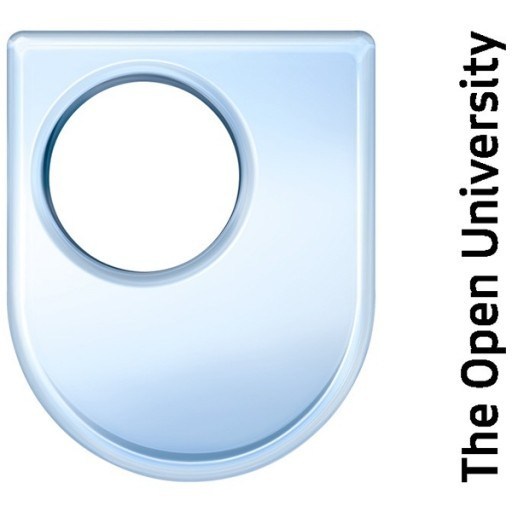Photos of university / #uniofeastanglia
Description
This is the part-time version of the main history programme. It provides you with the greatest range of choice by allowing you to design your own programme of study by selecting from any of our history modules. This is undoubtedly the option to choose if you are interested in most areas of historical study, or are unsure of the types and periods of history in which you want to specialise.
Detailed Course Facts
Application deadline January 15 Tuition fee- EUR 10560 Year (EEA)
- EUR 14600 Year (Non-EEA)
- English
Course Content
During your first two years, you acquire a solid foundation both in the main periods in British and European history from the high Middle Ages to the 20th century as well as an introduction to more specialised historical themes such as witchcraft and the environment. You also have the opportunity to reflect on how historians write history during the module Doing History. In your third and fourth years, the wide range of modules available, combined with the fact that you are virtually guaranteed your first choice of selected modules, enables you to focus, for example, on medieval history, the political and international history of Britain and Europe since 1789, social and cultural history across time, early modern and modern Britain or modern Europe. The important thing is that you choose. In your final two years the emphasis switches to more intensive Special Subject modules where you work and research in small groups on a specialised topic close to the research expertise of each member of faculty. You also complete an extended project or dissertation to demonstrate the skills you have acquired during the degree programme.
Assessment
Key skills, issues and ideas are introduced in lectures given by all members of faculty. More specialist study is undertaken in small group seminars. These are chosen from a range offered within the School and across the University. You will also spend time studying and researching in the library or carrying out practical work or projects. In most subject areas, you are assessed at the end of each year on the basis of coursework and, in some cases, project and examination results. In your final year, you will write a dissertation on a topic of your choice and with the advice of tutors. There is no final examination. Your final degree result is determined by the marks you receive in levels two and three.
English Language Requirements
IELTS band : 6.5 TOEFL iBT® test : 88
To study at this university, you have to speak English. We advice you to
take an IELTS test. More About IELTSRequirements
- Qualification: BA (Hons)
- A Level: AAB including B in History
- International Baccalaureate: 33 points including 5 in Higher Level History
- Scottish Highers: At least one Advanced Higher preferred in addition to Highers
- Scottish Advanced Highers: AAB including Grade B in History
- Irish Leaving Certificate: AAAABB including grade B in History
- Access Course: Please contact the university for further information
- HND: Please contact the university for further information
- European Baccalaureate: 80% including History
Students who apply for part-time courses, generally do so with a wide variety of qualifications and experience. For the majority of candidates the most important factors in assessing the application will be past and future achievement in examinations, academic interest in the subject being applied for, personal interest and extra-curricular activities and the confidential reference. We consider applicants as individuals and accept students from a very wide range of educational backgrounds and spend time considering your application in order to reach an informed decision relating your application. Please note, there may be additional subject entry requirements specific to individual degree courses. We encourage applicants to contact the university if they are unsure about the relevance of their qualifications.
Students for whom English is a Foreign language
We welcome applications from students from all academic backgrounds. We require evidence of proficiency in English (including writing, speaking, listening and reading). Recognised English Language qualifications include:
- IELTS: 6.5 overall (minimum 6.0 in Reading and Writing with no less than 5.5 in any component)
- TOEFL: Internet-based score of 88 overall (minimum 20 in Reading and Speaking components, 19 in Writing component and 17 in Listening components.
- PTE: 62 overall (minimum 55 in Reading and Writing components with no less than 51 in any component).
If you do not meet the University's entry requirements, our INTO Language Learning Centre offers a range of university preparation courses to help you develop the high level of academic and English skills necessary for successful undergraduate study.
Special Entry Requirements
Students who have been away from mainstream education for a significant period of time may be required to submit a short essay to help in assessing suitability for the course.
GCSE Offer
Students are required have GCSE Mathematics and GCSE English Language at Grade C or above.
Work Experience
No work experience is required.
Want to improve your English level for admission?
Prepare for the program requirements with English Online by the British Council.
- ✔️ Flexible study schedule
- ✔️ Experienced teachers
- ✔️ Certificate upon completion
📘 Recommended for students with an IELTS level of 6.0 or below.
Related Scholarships*
- Academic Excellence Scholarship
"The Academic Excellence Scholarship can provide up to a 50 % reduction in tuition per semester. These scholarships will be renewed if the student maintains superior academic performance during each semester of their 3-year Bachelor programme. The scholarship will be directly applied to the student’s tuition fees."
- Access Bursary
Bursary for UK students all subjects where the variable tuition fee rate is payable.
- Alumni Bursary
Alumni Bursary for UK Undergraduate students
* The scholarships shown on this page are suggestions first and foremost. They could be offered by other organisations than University of East Anglia.




